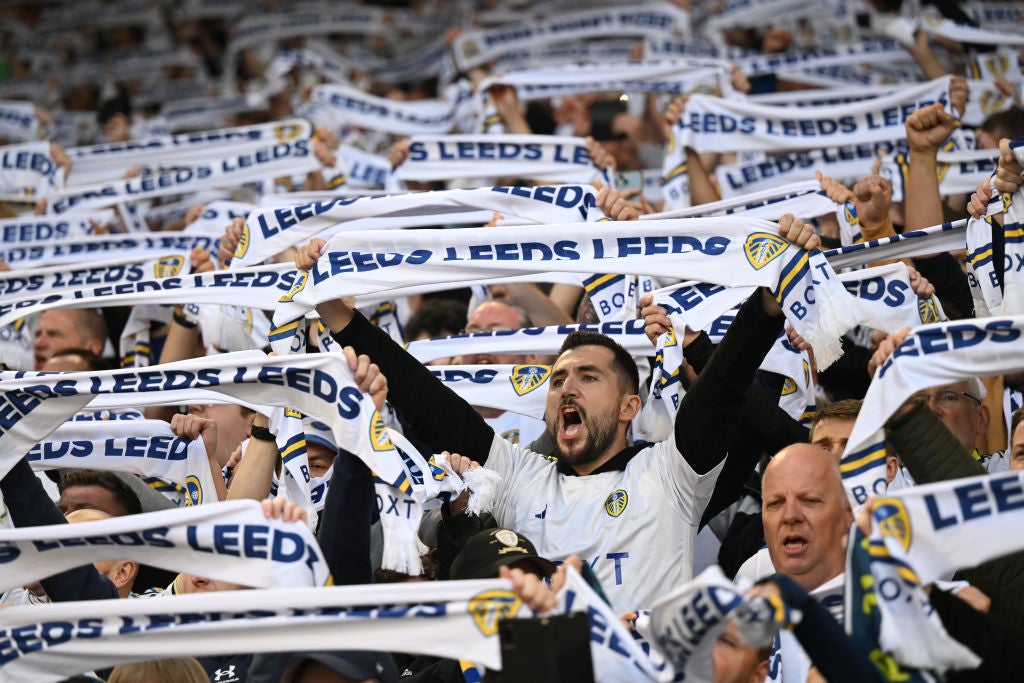
For a club that exists in a state of permanent drama, Leeds United don’t get promoted too often. Their size may suggest they should be a near-constant presence among the elite but there have been long spells of exile in the lower divisions.
They only have three promotions to the top flight in the last nine decades; two of them under managers, in Don Revie and Howard Wilkinson, who would go on to make them champions, the other under the iconoclastic, inimitable Marcelo Bielsa.
Daniel Farke may not normally be bracketed with them; he may have little in common with two stubborn Yorkshiremen whose different brands of dourness may have meant they are underappreciated outside Leeds while Bielsa is a man apart in most things and a unique tactician who steered United into the top 10 of the Premier League. Farke doesn’t yet have their repute; a promotion expert took Norwich up twice before but they went down immediately on each occasion.
He would object to a characterisation as a yo-yo manager and fluctuating as the fortunes at Elland Road can be, Leeds are not the stereotypical yo-yo club. Not when their past has shown them they are capable of so much more.
But after one of the great Elland Road nights, an extraordinary atmosphere allied with a magnificent performance, Norwich were demolished, Leeds 90 minutes from the Premier League, Farke one win away from choice company.
“If you asked me in September if we would return after one year to the Premier League I would say, ‘no chance’,” said the German. Because Leeds’ season started with no wins in their first three games, just one in their opening five. They had been decimated: partly by the departures that inevitably result from demotion but partly as a consequence of the former director of football Victor Orta’s misguided policy of giving players clauses in their contracts allowing them to leave on loan in the event of relegation.
Exit, one way or another, Robin Koch, Diego Llorente, Brenden Aaronson, Rasmus Kristensen, Marc Roca, Maximilian Wober, Jack Harrison, Tyler Adams, Rodrigo and Luis Sinisterra. Leeds loaned out footballers who had cost them more than £100m. Of the 10 players to start 20 Premier League matches last season, seven were gone.
Farke was starting from scratch, furnished with a few new signings, aided by the youthful talent in the ranks – and Crysencio Summerville has exploded to excel in the lower league – with Leeds benefiting from the protection parachute payments afford but hampered by the burden of expectation and the problems of their history. Champions the last year before the Premier League’s inception, they have spent 17 of their last 20 seasons outside it.

If relegation required reinvention, Farke sensed an opportunity in Leeds. It is part of its allure. The romantic in Bielsa did, too; so, too the businessman in Andrea Radrizzani, the former owner, and his successors, the San Francisco 49ers.
Farke presented himself as a similarly ambitious figure. “Nobody is more greedy than me to return to the top flight,” he said. “I want to return to the best league in the world as soon as possible. I wouldn’t have signed for any other club in this league because the last time I was in it, I won it. Last season I was in the German Bundesliga, I prepared for games against big clubs like Borussia Dortmund and Bayern Munich.”
Next season, he may be preparing for matches against the Manchester clubs, Arsenal and Liverpool. That felt in doubt when, having risen from 15th in early September to first in March, Leeds won only one of their last six league games. They have found tragicomic ways to fail to get promotion in the past. History has threatened to repeat itself.
Now Farke can challenge his team to become Leeds legends, to join Revie’s 1964 team, Wilkinson’s 1990 side and Bielsa’s class of 2020. And, in a different way, to join Dick Ray’s rather less famous side of 1932; they were the last Leeds side to win promotion the year after relegation. “To get back at the first time of asking would be great,” Farke said.

Given the finances involved, it has an added importance. There would be consequences if not; Summerville, for one, has surely reached a standard that means he would not be in the Championship next season.
Farke signed a long-term contract in part because he knew promotion was no formality in year one. “If we really do it we can speak about how difficult it was,” Farke said. “It is too early for praise and self-loving.”
Far too soon, too, for him to replicate the full impact of Bielsa, let alone Wilkinson and Revie, but there could soon be a fourth member of their select band. As Farke said: “We have a great chance to write another chapter of history in this amazing club.”







